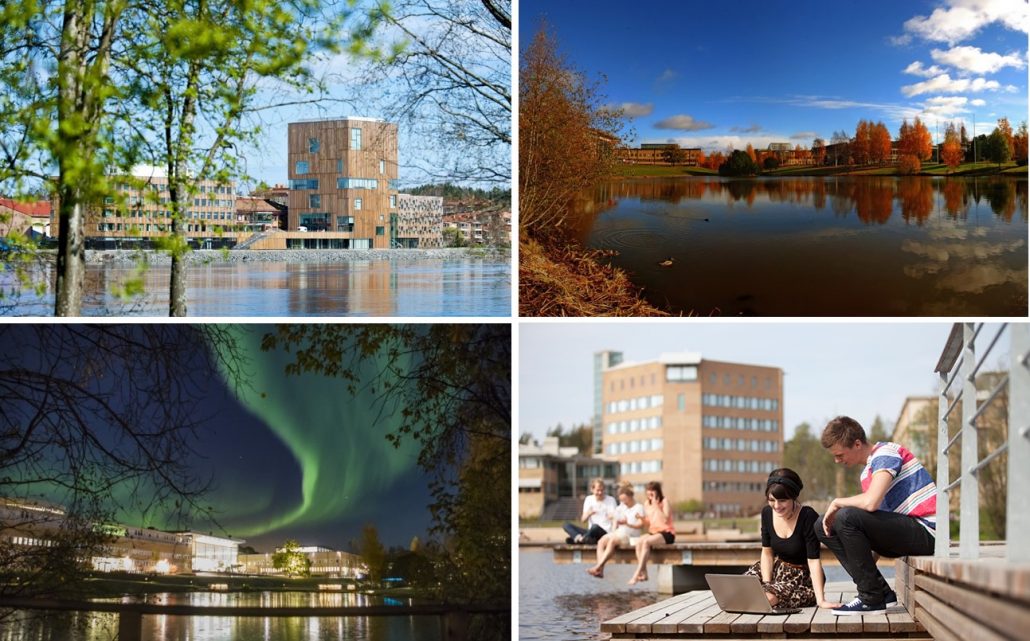Postdoctoral and PhD opening at Wu lab: Autophagy & Chemo-optogenetics
Umeå University is dedicated to providing creative environments for learning and work. We offer a wide variety of courses and programs, world leading research, and excellent innovation and collaboration opportunities. More than 4300 employees and 33979 students from over 60 nationalities have already chosen Umeå University. The recent breakthrough researches from Umeå include deciphering the molecular mechanisms of the bacterial CRISPR-Cas9 system and repurposing it into a tool for genome editing.

The Wu lab recently relocated from Max Planck Institute in Dortmund Germany to Umeå Sweden. The lab is located within the cross-disciplinary Chemical Biological Centre (video) (www.kbc.umu.se/english/) at Umeå University. The lab is fully equipped for biological and chemical researches with access to excellent facilities and state-of-art equipment and platforms in a creative, inspiring, international and highly interactive environment. Facilities include Protein Expertise Platform, X-ray, Proteomics, NMR (850-400 MHz), Cryo-EM and Biochemical Imaging Centre (confocal, FLIM, spinning disk, TIRF, STORM).
Project: Autophagy mechanisms
Autophagy is an evolutionarily conserved self-eating process mainly to eliminate or recycle dysfunctional cellular organelles or unused proteins. Autophagy plays an important role in physiology including development and ageing and has been associated with diverse human diseases, including cancer, neurodegeneration and pathogen infection. Autophagy modulation is implicated in the treatment of diseases such as neurodegeneration and cancer. Despite extensive work, the mechanisms of autophagosome formation and autophagy regulation are not yet well established. Our laboratory has elucidated fundamental mechanisms underlying autophagosome formation and bacterial escape from host autophagy using chemical genetic approaches (eLife 2017, Angew Chem 2017, Nat Chem Biol 2019). We will combine cell biological, biochemical, and novel chemical and chemo-optogenetic approaches to understand the mechanism of autophagic membrane morphogenesis and bacterial interaction with host autophagy.
Project: Chemo-optogenetics
Genetic perturbations such as knock-out or knock-down approaches is powerful for biological studies. However, traditional genetic approaches are chronic (hours to days). Consequently, the phenotype may not be detected due to adaptation and the dynamics of phenotypic change cannot be followed. Chemical genetic approaches using small molecules are acute, reversible, conditional and tunable and have been very useful to dissect the complexity of biological regulatory networks. However, many of these compounds have additional off-target effects that may confound elucidation of biological systems in certain contexts. Our laboratory has developed a set of chemical and photochemically induced dimerization (CID, pCID, psCID) system to spatiotemporally control cellular signaling and intracellular cargo transport (Angew Chem 2014, 2017, 2018, 2018). We will further develop novel chemo-optogenetic systems that enables the activity to be controlled by light with high spatial and temporal precision in live cells and organisms.
The projects are interdisciplinary with strong international collaborations across scientific disciplines. The European Research Council (ERC) and Wallenberg Foundation are funding the research in long term.
Requirements
The required qualification for postdoc is a doctoral degree in cell biology, biochemistry, chemical biology, or in another relevant field. The required qualification for PhD student is a master degree or equivalent in chemistry or biology related field. Highly motivated young talents are encouraged to apply.
Information
For how to apply: https://www.umu.se/en/work-with-us/fellowships-and-grants/6-1190-19/
For further information you are welcome to contact Prof. Yaowen Wu
Webpage: https://www.biostruct.umu.se/principal-investigators/yaowen-wu/
E-mail: yaowen.wu[at]umu.se
Press release:
https://www.kva.se/sv/pressrum/pressmeddelanden/goran-gustafssonpriser-2019-tre-miljoner-mer-till-yngre-forskarehttps://www.umu.se/en/news/yaowen-wu-is-awarded-the-goran-gustafsson-prize-in-molecular-biology_7673132/



